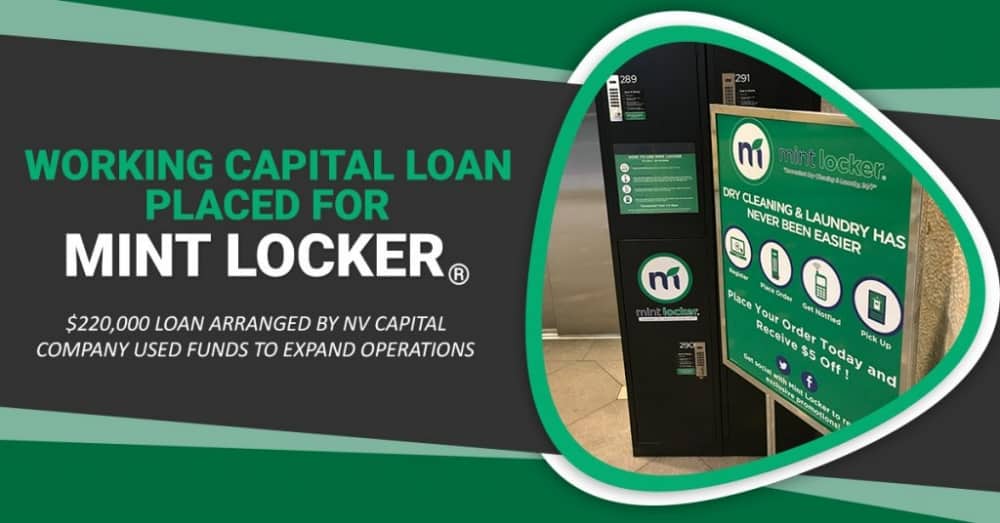The Function of Hard Money Loans in Realty Transactions: What You Required to Know
Tough money loans are a pivotal financing device in realty transactions. They offer capitalists fast access to capital, especially in immediate scenarios. Guaranteed by actual building, these fundings concentrate on asset worth instead than the consumer's credit report. They come with notable risks and expenses. Recognizing the nuances of tough money fundings is crucial for any individual wanting to navigate this complicated economic landscape efficiently. What factors should capitalists think about prior to proceeding?
What Are Hard Money Fundings?
Tough money lendings work as a crucial financing choice in property purchases, specifically for investors seeking fast accessibility to resources. Unlike traditional car loans, hard cash finances are protected by real property and are mainly based upon the worth of the property instead of the borrower's creditworthiness. These finances are generally provided by personal loan providers or capitalists, making it possible for debtors to bypass prolonged authorization procedures connected with traditional financing.
Tough cash car loans are typically temporary solutions, with repayment periods ranging from a few months to a few years. Due to their expedited nature, they are prominent amongst real estate flippers and those needing immediate funds for home procurement or rehabilitation. Rates of interest for hard cash loans often tend to be more than conventional loans, mirroring the enhanced risk loan providers embark on. Generally, tough money fundings meet an essential role in the real estate market, satisfying those who need versatility and speed in their funding choices.
Advantages of Hard Cash Loans
While typical funding can be cumbersome and sluggish, tough cash fundings use numerous distinctive advantages that attract genuine estate financiers. One essential benefit is the speed of the funding procedure; finances can typically be accepted and funded within days, allowing financiers to confiscate chances promptly. This quick turnaround is specifically beneficial in affordable markets where time is important.
Additionally, difficult money lendings are mainly asset-based instead than credit-based, suggesting that investors with less-than-perfect credit report can still secure financing. This access makes it possible for a wider series of investors to involve in property deals.
Hard money loan providers usually have extra flexible terms and conditions contrasted to conventional lenders, enabling for personalized settlement plans customized to private project demands. This flexibility can enhance an investor's ability to handle cash money circulation properly during remodelling or resale phases. In general, these advantages make tough money fundings an engaging option for several property endeavors.
Possible Downsides to Consider
While tough cash fundings can supply quick funding, prospective disadvantages necessitate careful factor to consider. Debtors often face greater rate of interest prices compared to standard financing, which can raise overall expenses. Furthermore, the much shorter payment terms might press customers to protect refinancing or sell the home earlier than expected.
Greater Rate Of Interest
Greater rate of interest represent a substantial factor to consider in hard money fundings, particularly in property deals. These car loans typically come with rates that are substantially greater than standard funding choices, commonly varying from 8% to 15%. This raised cost can impact the overall productivity of a realty financial investment, as customers may locate themselves alloting a bigger section of their spending plan to passion settlements. Furthermore, the high rates can create challenges for capitalists seeking to take advantage of their resources efficiently. For those that are not gotten ready for these financial ramifications, the concern of high-interest repayments can cause capital problems, eventually affecting the success of the residential property financial investment. Comprehending the implications of greater passion prices is necessary for possible debtors.
Much Shorter Settlement Terms
Much shorter repayment terms are a defining feature of difficult money finances, which can offer numerous challenges for borrowers. Usually ranging from 6 months to 3 years, these terms need borrowers to pay back the financing promptly, commonly causing monetary strain. The stress to produce returns within a limited duration can press debtors to rush property remodellings or sales, potentially endangering the high quality of the financial investment. In addition, the requirement of a quick leave approach might limit alternatives for refinancing or selling, leading to higher threats. Customers must meticulously consider their financial abilities and market conditions to stay clear of failing on these loans, which can cause the loss of the collateralized property.
Exactly How Hard Cash Car Loans Work
Tough money financings operate via a distinct structure that focuses on asset worth over credit reliability. The authorization procedure is generally swift, enabling borrowers to gain access to funds promptly compared to standard financing. Additionally, an assessment of interest prices reveals that hard money financings commonly carry greater expenses, mirroring the increased danger taken by lenders.
Lending Framework Discussed

In real estate deals, recognizing the structure of tough cash lendings is essential for financiers seeking fast financing. Hard money lendings are generally secured by realty, with the building functioning as security. These loans generally include higher rate of interest compared to standard funding, reflecting the raised risk taken by loan providers. The funding terms are typically brief, typically ranging from six months to 3 years, helping with fast accessibility to capital. Car loan quantities can vary significantly, typically depending on the building's value as opposed to the consumer's credit reliability. Capitalists take advantage of the expedited approval procedure, enabling them to seize investment possibilities quickly. In general, the structure of hard money fundings deals with those requiring quick, adaptable financing options in actual estate markets.
Approval Process Review
The approval procedure for difficult cash lendings stands out from traditional lending methods, mostly concentrating on the security instead than the consumer's credit history account. Lenders review the value of the residential property being utilized as security, guaranteeing it satisfies their requirements for risk assessment. As soon as a home is identified, customers send a loan application that includes information concerning the home and the meant use funds (Georgia hard money lenders). The loan provider conducts a fast appraisal and might need additional paperwork, but the procedure is commonly quickened contrasted to conventional finances. Approval frequently occurs within days, allowing consumers to accessibility funds swiftly. This structured technique is beneficial genuine estate financiers looking for quick financing services for purchase or restoration jobs
Rates Of Interest Contrast
While tough cash financings provide quick access to funds, their rates of interest are generally higher than those of conventional home mortgages. Borrowers can anticipate rates ranging from 8% to 15%, depending upon the lending institution and the specifics of the transaction. On the other hand, standard home mortgage rates typically drop in between 3% and 6%. The greater prices associated with difficult money loans mirror the boosted risk lending institutions take, as these finances are typically protected by the building itself instead of the consumer's creditworthiness. This indicates that while hard money financings can assist in swift financing genuine estate investments, they can also result in significantly greater costs with time, making it essential for debtors to thoroughly review their economic circumstance prior to proceeding.
When to Make Use Of Hard Cash Fundings
When is it sensible to contemplate tough money finances in realty purchases? Investors commonly take into consideration these loans in circumstances where traditional funding is either inaccessible or not practical. get more info Tough cash car loans can be valuable for residential or commercial properties needing quick purchase, such as foreclosure auctions or troubled residential properties requiring instant renovations.
Additionally, real estate capitalists looking for to take advantage of time-sensitive chances, like turning residences, may find difficult cash lendings beneficial because of their expedited authorization process. Customers with less-than-perfect credit history or unusual buildings may likewise choose for tough cash financing, as lending institutions mainly concentrate on the home's worth instead than the consumer's financial history.
Tips for Selecting a Hard Money Lending Institution
Just how can capitalists assure they select the best difficult money loan provider for their property requirements? Complete study is crucial. Financiers ought to review prospective loan providers by examining their track record, customer, and experience reviews. It is suggested to look for out lending institutions who concentrate on the kind of home being financed, as this can improve the chance of positive terms.
Next, recognizing the loan provider's conditions is considerable. Investors should ask about rates of interest, charges, and repayment timetables. Clear interaction is essential; loan providers ought to agree to clear up any kind of uncertainties.
Furthermore, evaluating the lending institution's funding speed and adaptability can be advantageous, specifically in open markets. Financiers need to also consider developing a rapport with the loan provider, as a good connection can facilitate smoother deals. Getting in touch with industry specialists or real estate representatives can provide further insights and referrals, guaranteeing a knowledgeable decision.
Frequently Asked Questions
Can Hard Money Loans Be Used for Industrial Characteristics?
Hard money car loans can certainly be utilized for commercial residential properties, providing fast financing choices for capitalists - Georgia hard money lenders. These car loans are normally safeguarded by the home itself, permitting borrowers to gain access to funds without standard borrowing needs
What Is the Regular Loan-To-Value Proportion for Hard Cash Loans?
The typical loan-to-value proportion for difficult money finances generally ranges from 60% to 75%. This proportion differs based on the residential property type, loan provider plans, and specific borrower circumstances, reflecting the higher threat connected with these car loans.
Are Tough Cash Financings Readily Available to First-Time Buyers?
Difficult cash fundings can be obtainable to newbie homebuyers, though terms differ by lending institution. These finances commonly have higher rates of interest and shorter repayment periods, making them a much less standard choice for new buyers.
Just How Swiftly Can I Close on a Tough Money Lending?
The rate of closing on a tough cash car loan can differ, however usually it varies from a few days to a couple of weeks, depending upon the lender's demands and the borrower's economic situation. (Georgia hard money lenders)
What Records Are Needed to Request a Hard Cash Funding?

Unlike conventional car loans, hard cash loans are safeguarded by genuine residential property and are mainly based on the value of the possession rather than the consumer's credit reliability. Rate of interest prices for hard cash lendings have a tendency to be higher than traditional finances, mirroring the boosted risk lending institutions embark on. The approval procedure for difficult cash lendings is distinctive from typical loaning approaches, mostly concentrating on the security rather than the borrower's credit score profile. The greater prices linked with difficult money financings show the increased danger lending institutions take, as these finances are usually protected by the building itself rather than the debtor's creditworthiness. To apply for a difficult money finance, borrowers typically need to give home details, a loan application, evidence of income, credit history, and recognition.